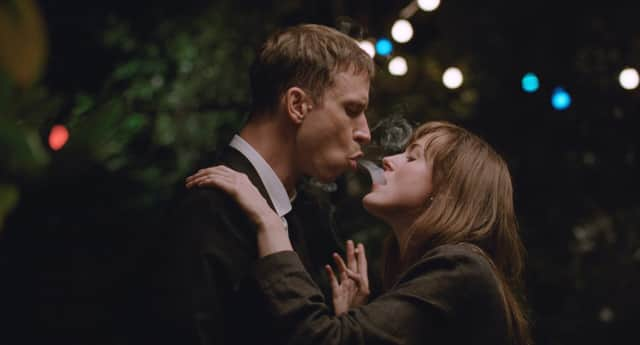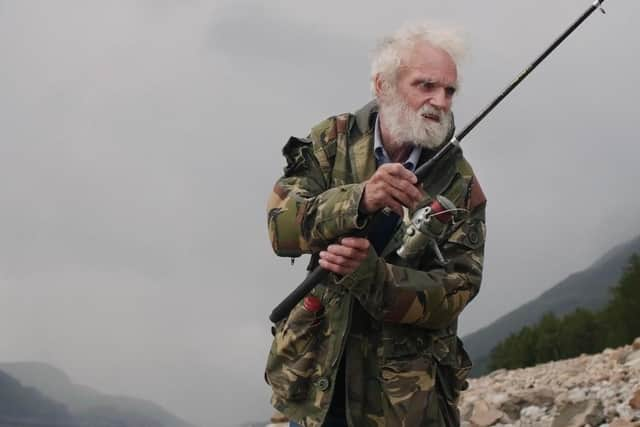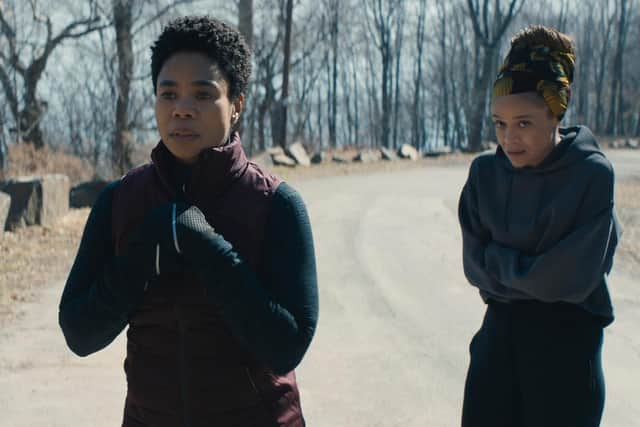Film reviews: The Worst Person in the World | The Hermit of Treig | Master


The Worst Person in the World (15) ****
The Hermit of Treig (PG) ****
Master (15) ***
It’s a little hard at first to see what all the fuss is about when it comes to Norwegian director Joachim Trier’s much-hyped double Oscar nominee The Worst Person in the World. This story about a twenty-something millennial woman undergoing an existential crisis as she turns 30 doesn’t appear to be doing anything especially radical or profound. It revolves around Julie (Renate Reinsve), a medical school drop-out so overwhelmed by the anxiety of the digital age she can’t decide if she wants to be a surgeon or a psychologist so embarks on a career as an aspiring creative. Dabbling in a bit of photography and a bit of writing, she’s a gallery assistant’s job away from being a dilettante cliché and Trier actively reinforces this with a self-consciously literary structure – chapter divisions, omniscient narrator, theme-explicating inter-titles – to give shape to her deceptively shapeless life.
But in presenting Julie as an archetypal hot mess, Trier is also pulling a bait-and-switch to tell a more subversive story about a young woman having the courage to repeatedly pull the pin on her life with no guarantee that her choices will bring her happiness. The film explores this via her relationships with two men. The first is Aksel (Trier regular Anderson Danielsen Lie), a 40-something comic book artist all too aware of the potential Pygmalion dynamic of their burgeoning relationship. The second is Eivind (Herbert Nordrum), who’s around Julie’s age and works a slacker job while pursuing a more meaningful interest in environmental activism. The first invocation of the title occurs as these relationships overlap, but Trier treats each differently, rooting one in the messy mundanity of real life and presenting the other with the cinematic flair of a swoon-worthy rom-com.
Advertisement
Hide AdWhich relationship is the more fulfilling, though, is a question about which the film daringly chooses to remain ambivalent, focussing instead on the implacable Julie and her ongoing quest to define herself. This can make her and the film seem aloof and Trier frequently frames things from the outside looking in. But there’s a formalistic purpose here that becomes more readily apparent during a key scene in which the film’s omniscient narrator compares Julia’s scant accomplishments on her 30th birthday with those of her mother, grandmother, great-grandmother and so on – each ancestor’s life pointedly marked by the number of children they’d had by the time they reached Julie’s age. It’s designed to contextualise Julie's relative freedom in an age where motherhood isn’t – or shouldn’t be – the defining aspect of a woman’s life. Yet the pressure to procreate is still subtly and persistently applied to Julie, who adopts a polite mask of non-committal inscrutability lest society damn her with the film’s title for daring to buck biological expectations. This is the reason why Julie can feel at times like an underdeveloped character; or, in her own words, why she feels “like a supporting character in [her] own life.”
Much of that pressure comes from Aksel and there’s a telling scene where he tries to console Julie following an emotionally fraught visit with her estranged father. “You have to make your own family,” he tells her on the bus journey home, to which Julie can only smile uncertainly. The scene’s setting is no coincidence either. Consciously echoing the frequently misunderstood ending of The Graduate, it’s swiftly followed by Julie pulling the pin on her life again. The film is good at subtly teasing out the complexities of modern relationships in this way and it’s carried by Reinsve’s multi-layered performance. She doesn’t behave the way romantic protagonists generally do because this isn’t a film about a character searching for someone to complete them. It’s about a character searching for a way to complete themselves.


Winner of the audience award at the recent Glasgow Film Festival, The Hermit of Treig is a beautifully filmed portrait of Ken Smith, the ageing hermit of the title who has spent the last four decades living off the grid in a self-made log cabin on the edge of Loch Treig near Fort William. Debut director Lizzie MacKenzie spent seven years getting to know her subject before he let her start filming and that shows in the lovely bond that emerges as she gently draws out his life story while probing him about the ever-changing challenges of living in the wild. The end result is a gentle, illuminating picture of what makes a fulfilling life.
In Master, debut writer/director Mariama Diallo uses the auspices of elevated horror to examine institutional racism in a prestigious Yale-like university. Regina Hall takes the lead as a tenured professor newly appointed as the first “house master of colour” on a campus dormitory said to be haunted by a witch burning dating back to Salem days. Zoe Renee co-stars as a young Black freshman assigned a room in which a previous student troubled by the legend hanged herself. Both women soon experience things going bump in the night, but ghostly apparitions have nothing on the daily micro-aggressions they’re expected to shrug off as they engage with the majority white faculty and student body. The film is at its most unsettling when dramatising the insidious psychological effect all the token gestures towards inclusivity have on both women, but Diallo struggles to make the genre elements cohere into anything more than a perfunctory afterthought.
The Worst Person in the World and The Hermit of Treig are in cinemas from 25 March; Master is streaming on Prime Video now.
A message from the Editor


Thank you for reading this article. We're more reliant on your support than ever as the shift in consumer habits brought about by coronavirus impacts our advertisers.
If you haven't already, please consider supporting our trusted, fact-checked journalism by taking out a digital subscription at https://www.scotsman.com/subscriptions